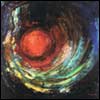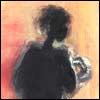While emphasizing the instruction of our Sages to accept that everything “G‑d does is for the good,” the Rebbe took pains to point out that this does not mean that we are required to justify all that G‑d does. That is, even as we pursue the silver lining, it’s not for us to explain the cloud away.
In a religious context, this may seem counterintuitive. If everything G‑d does is for the good, isn’t it our obligation as His loyal subjects to be His “apologists” and “PR team” to find and explain the meaning behind every natural and unnatural disaster that occurs?
The answer from the Rebbe is a most definite “No.”
After the 1956 massacre in Kfar Chabad, the Rebbe wrote a letter to the award-winning Israeli writer Eliezer Steinman. In the letter (a portion of which we cited in chapter 14 above), he refers to the story in the book of Leviticus1 that describes the untimely passing of two of Aaron’s sons, Nadav and Avihu, by means of “a fire [that] came forth from G‑d and consumed them.” Subsequently, Moses comforted his brother Aaron, saying, “Of this did G‑d speak when He said, ‘I will be sanctified through those who are nearest Me.’” Aaron responded to this statement with silence. The Talmud2 explains that Moses’ cryptic words were meant to convey the idea that when G‑d imposes strict judgment upon the righteous, He is feared and honored—i.e., people say that if such is the fate of the righteous, surely the punishment of the evil will be much worse. The Rebbe explained how to look at these verses in light of a current tragedy:
Some have wanted to explain the horrible tragedy in Kfar Chabad as an example of “I will be sanctified through those who are nearest Me….” That explanation, however, is useless. For in that story, too, the explanation is cryptic and incomprehensible; all we learn from there is that such Divine behavior exists, but at the most what we have here is a juxtaposition of two incomprehensible stories of tragedy, but not an explanation of them. Therefore, the situation calls for “And Aaron was silent3.”4
At a public gathering in 1974, after a terrible car accident claimed the lives of five beloved residents of Kfar Chabad, including the town’s venerated rabbi, Rabbi Shneur Zalman Garelik, of blessed memory, the Rebbe said, “My father-in-law once said to someone who was trying to make sense of the Holocaust, ‘It’s not our business to excuse G‑d.’”
These seemingly irreverent words were accompanied by a qualifying declaration of faith:
It goes without saying that the words spoken do not in any way contradict faith; on the contrary, the complaint itself demonstrates the conviction that there is Someone to complain to, that Someone is responsible for what happens in our world, and that He listens and cares.
And for those who wonder how it is possible to express oneself in such a way (“it’s not our business to excuse G‑d”), this type of talk is rooted in the Talmud:5
“Moses came and prayed, ‘The great, powerful, and awesome G‑d.’6 Jeremiah came and said, ‘Strangers are croaking in His sanctuary!7 Where [are the displays of] His awesomeness?’ and did not mention ‘awesome’ [in his prayer]. Daniel came and said, ‘Strangers are enslaving his children [the Jewish nation, during the seventy-year duration of the Babylonian exile8]. Where is His power?’ and did not say ‘powerful.’ [Then] came [the Men of the Great Assembly] and said, ‘On the contrary! This is His magnificent display of strength, for He restrains His will all these years that his people are subjugated, in that He shows a long-suffering countenance to the evil by not punishing them despite the numerous oppressions they decree against His people. And these are indeed the great displays of his awesomeness, because if not for the awe of the nations for the Holy One, Blessed is He, how could one solitary nation survive among the seventy nations of the world?’9 The Men of Assembly therefore reinstated mention of these attributes in their prayer.”
The Talmud asks: “Now, the rabbis—that is, Jeremiah and Daniel, each of whom omitted one of the attributes stated by Moses in his prayer—how did they act thus and abolish the institution that Moses instituted?” And the Talmud answers: “Rabbi Elazar said: ‘Because they knew about the Holy One, Blessed is He, that He is truthful and despises falsehood; they therefore would not speak falsehood to Him.’” (Given their position that those attributes were not then manifest, they could not utter them in their prayers, as this would constitute speaking falsehood unto G‑d.)
And the same is true, in our instance, that when we see an occurrence that is utterly incomprehensible, we must say the truth, that the matter is utterly incomprehensible…and therefore we cry out!10
David Rivlin, who was the Israeli Consul General in New York in the early seventies, once shared the content of a visit he had with the Rebbe ten years before, together with Moshe Sharett, the second prime minister of Israel. “At one point,” Mr. Rivlin recalled, “the Rebbe said something that was engraved in my memory and moves me until today. We had been discussing Eichmann’s capture and trial when Moshe Sharett brought up the Holocaust. The Rebbe said that after the Holocaust, there were certain religious leaders who requested that his father-in-law, the sixth Lubavitcher Rebbe, join them in coming out with a harsh proclamation against those who voiced doubts in G‑d following the Holocaust. The sixth Rebbe was vehemently opposed ‘because there is a place, especially for the complete believer, to express his lack of understanding, and he has full permission to challenge G‑d and ask, “How could You do this?’”11
It is this trait of crying out upon encountering human suffering, and the refusal to come to terms with or try to make sense of evil, that distinguishes Judaism’s greatest leaders, dating back to our patriarch Abraham. In his heart-wrenching plea for G‑d to save the depraved city of Sodom, Abraham challenges G‑d, “Will the Judge of all the earth not do justice?”12
Later on in Jewish history, Moses would also choose to remain conscious of human suffering and pained by it rather than make peace with G‑d’s ultimate plan. As one moving interpretation would have it, at the burning bush G‑d offered to explain the meaning behind human suffering to Moses—“what is above and what is below”13—but Moses refused the offer, as it says, “Moses hid his face.”14 Moses had no desire to understand why people suffer; he had no interest in the justification of pain. As hurtful as it would prove to be, he wanted to forever retain the aspect of his humanity that recoils when another human being suffers.
During one particularly emotional talk that he gave on Hoshaana Rabbah 5744 (September 20, 1983), the Rebbe went so far as to imply that the reason, if it can be called a reason, why human suffering cannot be understood by the human mind is in order to leave human beings with no other way to process and rationalize the pain other than “to cry out to G‑d sincerely and from the deepest depths of their heart,” demanding that, once and for all, He do away with all pain and suffering by ushering the period of Moshiach and world redemption.
After quoting a mystical text which aims to explain the meaning behind the state of galut, or Jewish Exile, that began with the destruction of the Holy Temple and the dispersion of the Jewish people into the Diaspora, the Rebbe said:
Over nineteen hundred years of suffering have passed, and we have still not been redeemed…. Notwithstanding all of the rationales given for that which is gained by the state of exile, the questions remain: G‑d is Omnipotent and has no limitations. He could have found a way that avoided all forms of severity, certainly any harshness or suffering….
And we are told to accept on faith—even though it is incomprehensible—that one day we will comprehend and thank G‑d for his “harshness….”
…we are told that there is one mystery so profound that it will be revealed only when Moshiach comes, and indeed, there are no answers today!
Why is all this suffering necessary? The Divine presence suffers in exile…every single Jew suffers in exile, and it continues to get worse…. “Each day’s suffering is greater than the previous one….”
Evidently, the only explanation for such concealment is that G‑d wants man to cry out with the deepest sincerity, “We long for you all day!” If a person were to be able to grasp in any way the “goodness” of exile, he would rationalize the pain and wouldn’t cry out for the coming of Moshiach from the depths of his soul, so long as even one small part of his soul reassures him that exile is good….15
Certainly, this “crying out to G‑d with the deepest sincerity” is how the Rebbe reacted to suffering.
While the Rebbe’s general attitude was one of optimism, faith, and joy, and his enthusiasm was infectious and uplifting, on the 9th of Adar I, 5752 (February 13, 1992), the Rebbe publicly expressed his anguish at a local tragedy.
A week earlier, a resident of Crown Heights, Pesha Leah Lapine, a wife and mother of four young children, returned from her routine grocery shopping to her home. Attacked by a man who attempted to violate her, she valiantly tried to fight him off before being stabbed to death. The following day, thousands of Chasidic Jews, headed by the Rebbe, escorted her on her final journey to her resting place. For a long time after the coffin had passed him, the Rebbe stood in the street, his face expressing deep pain.
On the last evening of her shivah, the Rebbe addressed the crowd assembled at the Chabad Lubavitch Headquarters in Brooklyn. The Chasidim were stunned by his words, which expressed such intense emotion and distress. The Rebbe was trembling; even the lectern at which he stood was shaking. The following is excerpted from the Rebbe’s talk that night:
What has occurred—an act of open martyrdom—is utterly incomprehensible! There is no one to whom to turn for an explanation. All those present, including myself, are equally confounded. So what do we gain by questioning? The question will remain….
For many years to come—if, G‑d forbid, the fulfillment of the prophecy, “Those that lie in the dust will arise and sing”16 will be delayed—these children will long for their mother. They will recount to their own children their intense longing for their mother; they will tell them that she merited to sanctify G‑d’s Name….
Enough is enough! Have we not sufficed with all the martyrdom we have experienced until now?
…another day passes, another week passes, another moment passes…and Moshiach still has not come! We say and we think and cry out ‘Ad masai!’ (How long?) How long must we wait in exile? And yet what do we see happening? For the sanctification of G‑d’s Name, a Jewish soul is taken away; a mother is taken from her children.
May there be no further need to discuss these matters, for the Redemption will come immediately. “Those that lie in the dust will arise and sing,” and those who died al kiddush Hashem will merit to be resurrected first. And then this young woman will encounter her children and continue their education with a joyous heart.
May this take place in the immediate future without any delay whatsoever!17
This is but one of numerous talks where the Rebbe poured out all of his anguish over human suffering and his frustration with the drawn-out exile.
Not only did he never get comfortable in exile, he once exclaimed: “We cannot allow G‑d to rest until He actually brings Moshiach!”18
This was the essence of the message the Rebbe relayed to Mr. and Mrs. Tauger, whose son had been killed on the Pan American Flight 103, which was blown up in a terrorist attack over Lockerbie, Scotland.
When the grieving couple visited the Rebbe for “Sunday dollars,” they were introduced by the Rebbe’s secretary as a couple “whose son passed away in the Pan Am disaster last year…and who’ve come to request a blessing.”
The Rebbe responded first by blessing them “from here onward to have only happy tidings for you and your entire family” and then, in response to the question posed by the devastated mother, “How can we live with all that has happened?”, the Rebbe said: “After everything that has befallen the whole Jewish people in our generation (referring to the Holocaust), we cannot fathom the [meaning behind] tragedies….” [G‑d’s] reasons we do not know…but since we’ve seen what happened…and [that] G‑d has not yet responded, the one thing it must [do is] reinforce the demand that it is high time for Moshiach to come…He must answer all the questions….”19
As he handed the couple a dollar to be given to charity in England, the Rebbe concluded by blessing them, “May you be spared of any future questions….”
The Rebbe’s message to this couple, that their loss should “reinforce the demand that it is high time for Moshiach to come…,” was characteristic of what he himself did when left with a sense of the unfathomable rationale behind “G‑d’s reasons for tragedies,” which was to channel and pour his profound anguish and sorrow into heartfelt prayer and a demand from G‑d that “it is high time for Moshiach to come.”
All the Rebbe’s activities were driven by a hope and longing for a world free of pain and evil—the world of the Messianic Era.
In fact, the seed of this all-consuming hope and longing can be found in the Rebbe’s early childhood, when, growing up in Soviet Ukraine, the Rebbe was witness to the harsh persecution of his brethren.
In a letter addressed to the second president of Israel, Yitzchak Ben-Zvi, the Rebbe writes:
From the time that I was a child attending cheder, and even earlier than that, there began to take form in my mind a vision of the future redemption—the redemption of Israel from its last exile, redemption such as would explicate the suffering, the decrees, and the massacres of exile.20
In his letter to Mr. Ben-Zvi, the Rebbe goes on to quote the verse from Isaiah that prophesies that in that future time, “I will thank you, G‑d, for having rebuked me…” (Isaiah 12:1). The Rebbe explained that as a child, he yearned for the time when, having received consolation as only the Almighty can offer it, the Jewish people would be able to look back at all the hardships and pain of our long exile and give thanks to G‑d, acknowledging that everything that had come to pass was for the good.
And so, when faced with the tremendous suffering in this world, whether it be in a personal, communal, or global tragedy, the Rebbe’s passionate advocacy for a better world should inform and inspire our lives and the content of our hearts’ desires. For in the words of the Midrash regarding the Messianic Era:
All will be healed. The blind, the deaf, and the dumb, the lame, whosoever has any blemish or disability, shall be healed from all their disabilities…. Death itself shall cease, as it is said (in Isaiah 25:8), “Death shall be swallowed up forever, and G‑d shall wipe the tears from every face.”21
May it be speedily in our days!






Join the Discussion